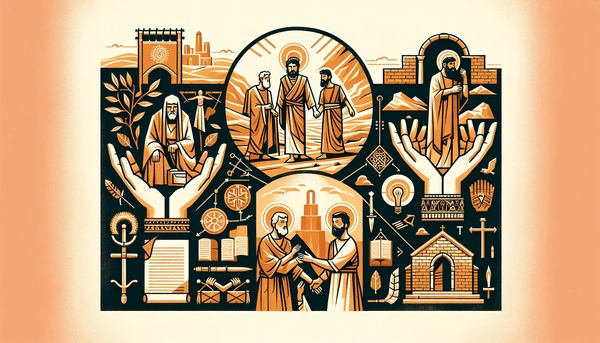Early Christian Church and Papacy
The foundations of the early Christian Church were laid by the apostles, who spread the teachings of Jesus and established communities of believers. The structure and hierarchy of the Church began to take shape during this time, with the apostles acting as leaders. Over time, the role of the papacy emerged as a unifying force, with St. Peter commonly recognized as the first pope, based on passages such as Matthew 16:18 where Jesus says, 'And I tell you that you are Peter, and on this rock I will build my church.' The early Christian Church was initially a unified body before denominational splits occurred, such as the Great Schism and the Protestant Reformation. The Church's early days are chronicled in Acts 2, Ephesians 2:19-22 describes the church's foundation on the apostles and prophets, and Revelation 21:14 alludes to the New Jerusalem's foundations being the apostles, mirroring the eternal perspective central to Christian worship.
Conclusion
In reviewing the stories and teachings of the Bible, we gain a greater understanding of the principles that shape Christian thought and practice. The narratives of Goliath and his kin, the apostolic origins of the Christian Church, and the guidelines on appearance and modesty all contribute to the rich tapestry of our faith. Reflecting upon these teachings allows us to consider how they apply to our lives today, reminding us of the timeless relevance of the Bible's wisdom in guiding our spiritual path and fostering a deeper connection with our heritage. Moreover, the practice of prayer is instrumental in building a relationship with God, serving as a foundation for spiritual growth and alignment with divine purpose.






